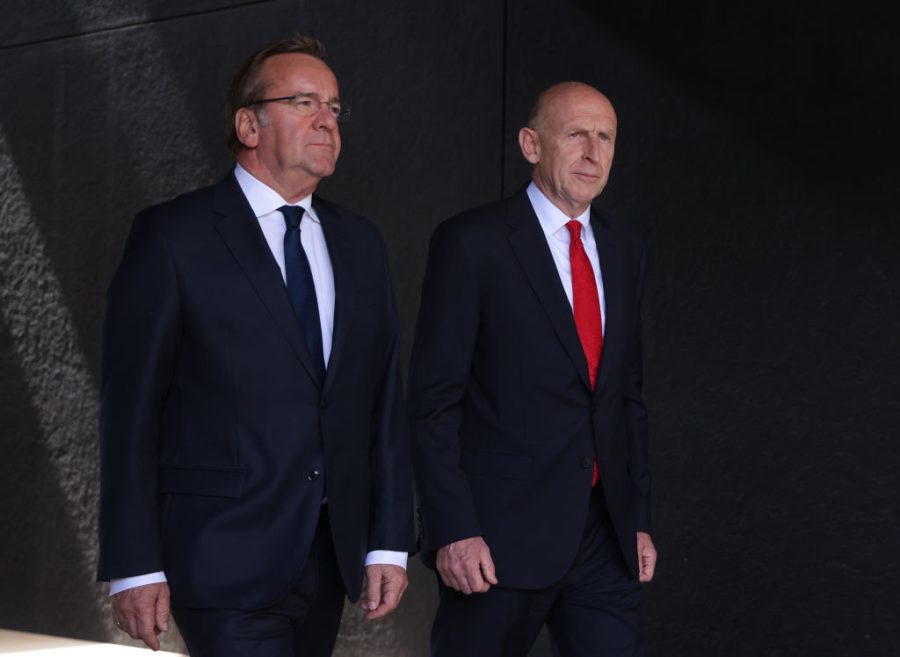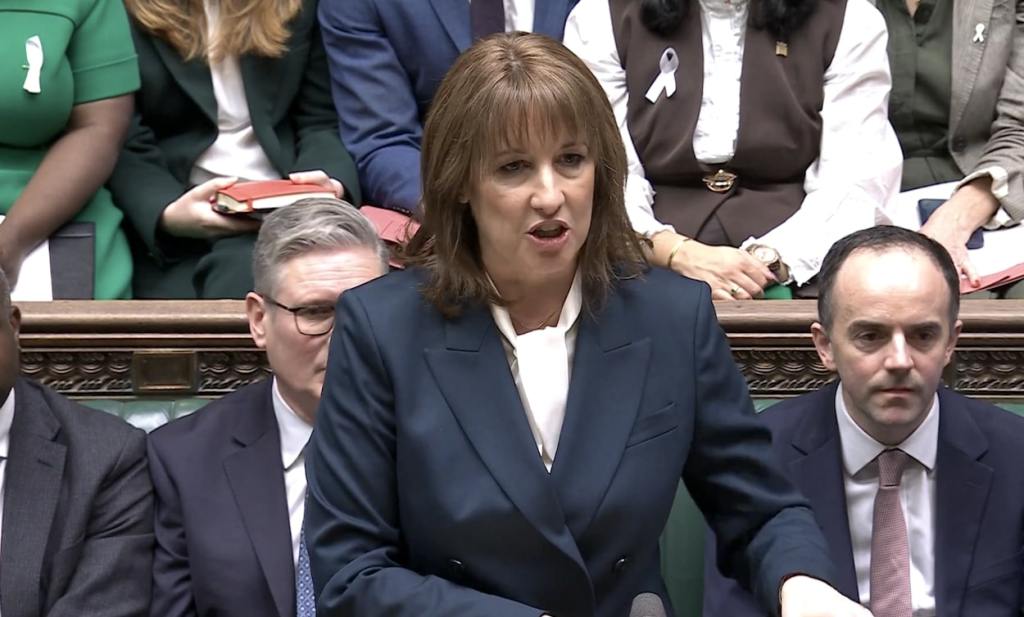‘Utter and complete poppycock’: that was Viscount Montgomery of Alamein’s verdict on an US proposal in the 1960s for a multilateral nuclear force crewed by international Nato personnel. Famed for defeating the Nazis in North Africa, Monty didn’t mince his words about that plan. There’s little doubt what he’d make of the quiet resurgence of multilateral nuclear thinking.
Defence chiefs in Britain – including a former chief of defence staff and Nato secretary general – have been urging the government to consider sharing Britain’s nuclear arsenal with Germany, which has none of its own. This would, the officials argue, help to counter the threat that Russia poses to European security as well as provide a slight counterweight should the Americans seek to focus their resources elsewhere. Lord Robertson said of a potential pact: ‘I welcome it. It’s right and proper and should have happened a long time ago.’
Weapons-sharing would only serve to dilute Britain’s ability to act independently
As the country grapples with rearmament, it’s easy to understand why the Germans might be in favour of any such arrangement, and there have been several calls by German politicians to have access to British and French nuclear weapons over the past year. But would this benefit Britain? And how would it affect our collective security obligations in Nato?
Maintaining an independent nuclear deterrent sits at the heart of Britain’s nuclear policy, though the deterrent is assigned to the defence of Nato and therefore covers much of the continent. However, ultimate operational control rests with the Prime Minister, who has the sole authority to order a nuclear attack.
The sharing of nuclear weapons would, at an operational level, dilute the clear command and control structure that exists around the deterrent. Who would have the power to authorise their use? Both the PM and the German Chancellor?
This differs from Britain and Nato’s current model, which rests on the capabilities of the nuclear-armed member states of the alliance. These are Britain and the United States, and potentially France which, while a nuclear power, does not make its nuclear weapons available to the alliance. Increased nuclear cooperation between Britain and France, especially after the signing of the Northwood Declaration earlier this year, does make it more likely, however, that France would consider using its arsenal in defence of the continent.
However, despite cooperation, each nation ultimately retains independence over their nuclear weapons, making deterrence much more effective. This is because a potential adversary must consider how the multiple centres of decision making might respond (Washington, London, and possibly Paris), complicating planning and the gauging of risk.
A shared system would flip this on its head by requiring permission from all parties before a course of action could be taken, considerably limiting freedom of action. Hence the disquiet voiced by General Sir Richard Barrons, former commander of the Joint Forces, that any weapons-sharing plan would get bogged down by the need for consensus.
Aside from the operational issues, there is the more fundamental question of sovereignty and national security. As an independent nation Britain alone reserves the right to use its nuclear arsenal in any way that it sees fit, and in ways which other nations – however allied – might not countenance. Weapons-sharing would only serve to dilute Britain’s ability to act independently, as well as weaken the deliberate ambiguity surrounding the use of weapons, which is also a feature of deterrence.
It might also be worth considering recent developments on the continent, which do not seem particularly conducive to a nuclear weapons-sharing environment. The first is the development of an EU defence architecture separate to Nato, which threatens to duplicate or undermine the effectiveness of the latter. Given that Britain is penalised by EU defence schemes that seek to limit the participation of third countries, it gains nothing from sharing its continental weapons beyond the guarantees implicit in its Nato commitments with EU member states such as Germany.
Secondly, the increasing success of nationalist parties across Europe makes the future of multilateral weapons-sharing highly uncertain for any British government. Attitudes toward such collaboration may be radically different across the Channel within just a few years. Marine Le Pen’s National Rally party has long opposed any sharing of France’s nuclear arsenal or expanded commitments to Europe’s nuclear umbrella. The party’s likely presidential candidate, Jordan Bardella, has been leading in the polls for some time. This might make Anglo-French nuclear cooperation more difficult but is ultimately manageable due to the independence of the British deterrent.
Meanwhile, in Germany, the far right AfD party are neck and neck with the Christian Democrats, whose grand coalition under Chancellor Merz looks increasingly unstable. The AfD does not have a clearly defined position on nuclear weapons, and it seems unwise to attempt to enter a long-term defence commitment with a country whose politics could change quite rapidly over the next few years.
It is difficult to see how sharing Britain’s nuclear arsenal would make the country or its allies more secure, while also posing serious risks to British sovereignty. To quote the hero of El Alamein once more, ‘the thing just is not on’.







Comments